The GUIDE quizzed writer Mark Waid and the illustrator David Lloyd on all things comic and whether movie adaptations affect the popularity of comic books. Excerpts from the interview...
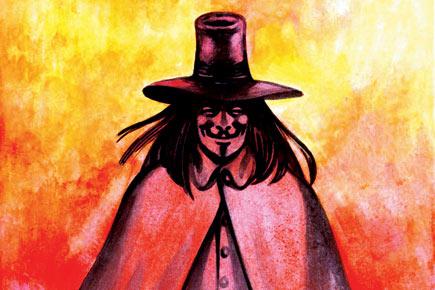
If the original is good, it'll survive adaptation: David Lloyd
ADVERTISEMENT
You started exploring the digital medium for comic art with Aces Weekly. How has the journey been so far — transitioning from hard copies to digital comics and how are fans reacting?
There's a definite resistance — this is a transitional period in publishing. We all know that digital is the future, but the printing press has been around for a long time and computers for a relatively short time. So, it'll take a while for the new kid on the block to make a name for himself.
This is the 21st century, and we don't need all that old machinery anymore to get images and stories out to the people, especially when we have computer devices all over the place. We can just beam stuff to them.
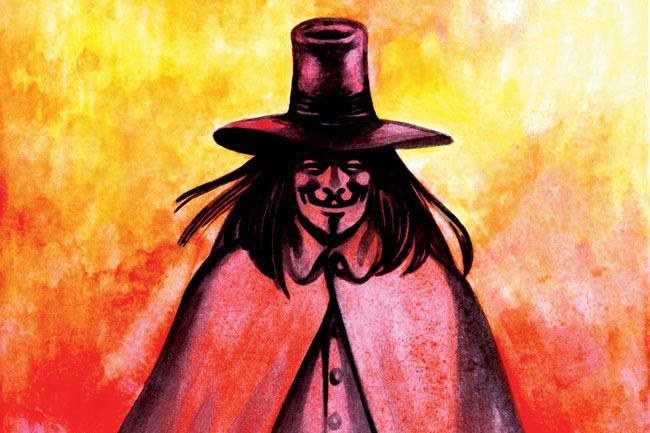 The original masked vigilante in V for Vendetta
The original masked vigilante in V for Vendetta
The Guy Fawkes mask has found recognition across countries where citizens are protesting against corrupt bodies (and even a popular DJ who wears it to his gigs). Had you ever imagined that the mask would gain such recognition?
No, it's a pleasant surprise. The great thing about that mask is that it has become an all-purpose symbol of resistance to oppression without being tied to any political end other than freedom from that oppression.
What idea did you have in mind while designing the character of V and his mask?
Only the idea of resurrecting the spirit of rebellion in the form of the failed rebel — Guy Fawkes. We want to make him a successful one this time. The clothing is all authentic to the period of Fawkes' existence, and the mask is just a stylised representation of his features.
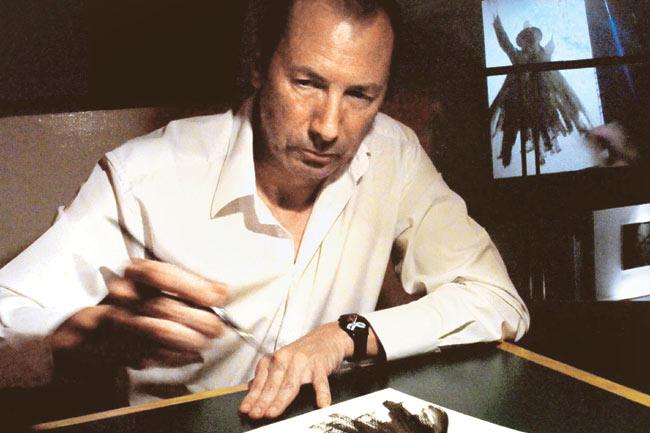
Illustrator David Lloyd
What is your take on digitisation of the comic industry?
It hasn't affected the art except for the often damaging overuse of computer-generated special effects. It has boosted the reproduction processes to a great degree and the digital editions of comic books, on platforms like Comixology. They have helped spread comics into the computer-using community. So, that's a mix of good and bad in terms of the comic industry. In the context of the art form, digitisation has led to ‘motion comics', which is clearly a bad development and the development of the ‘guided view' technique (used in Comixology's presentation of digital editions), also not a happy circumstance.
My company, Aces Weekly, is using the convenience of digital presentation to publish comic art and spread it cheaply, without unnecessary costs of printing, shipping, etc. It benefits the reader and the creator.
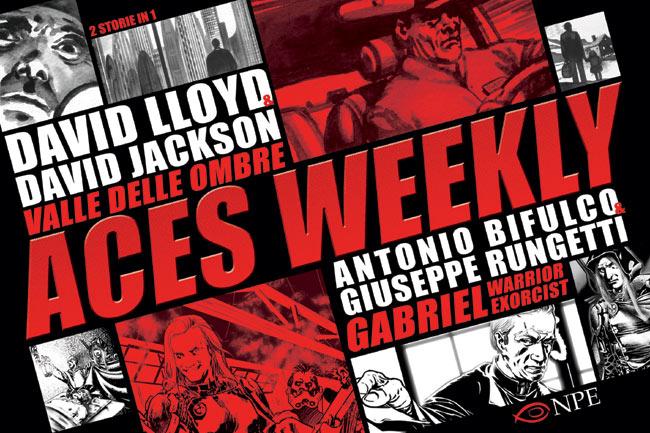
Lloyd now works on digital comic art magazine, Aces Weekly
What do you think filmmakers should do to do justice to comic books?
Of course, filmmaking adapters of comic books should stay true to what they are adapting. But filmmakers are creative individuals and find it hard to resist adding their inputs to adaptations from any other media. There's only one way to guarantee truth to an original source, and that is for the creator to retain control of it. It's the choice of the creator to do that. But whatever happens — the original still exists. And if the original is good enough, it will withstand any blows that may be made to it by an unfaithful adaptation.
Are there any current films based on comic books that you have liked?
I don't watch them.
Have you checked and liked any works by Indian artists?
I am completely ignorant of it except for seeing some work on Facebook. I look forward to seeing more on
my trip.
Not fazed by superhero movies: Mark Waid
You have worked on epic titles such as Captain America, Spiderman and The Incredible Hulk. How are they relevant to the times?
There'll always be a cultural significance to watching the struggles of good men and women fight for justice, in any era. Superheroes stay relevant to the times by the sort of menaces they face, and right now, a lot of American superheroes are battling enigmatic political forces and wealthy plutocrats — just like ordinary Americans do.
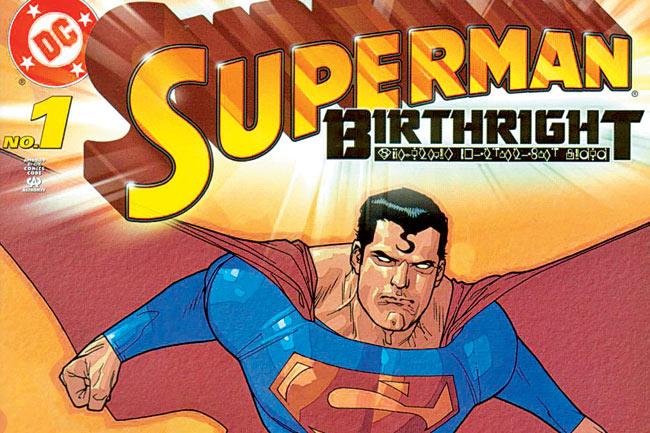
Cover of Superman Birthright
What is your reaction to superheroes becoming massively popular through the medium of films? Do you feel they subsume your work somehow?
Not at all. A good story is a good story, regardless of the medium in which it's told. And if good movies can remind people that good comics are still out there and available, so much
the better!
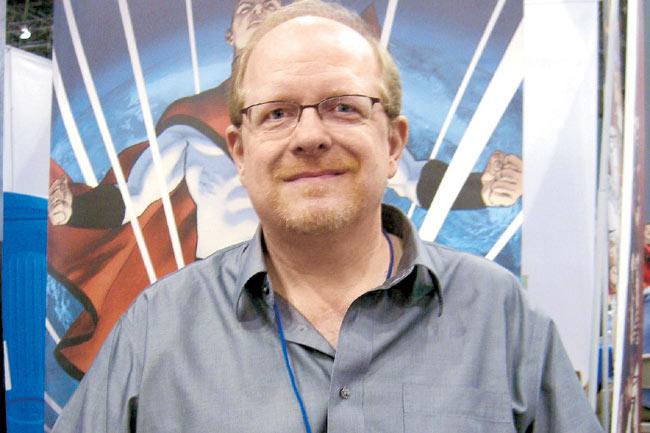
Comics writer Mark Waid
In your opinion, why is it considered cool to be a writer / editor of comic books? What are the nuances of being one (any tips)?
Ha! I don't know how cool it really seems to be, but I think everyone respects and admires people who follow their passion in life, rather than settle for an uncreative job. The nuances of being an editor are knowing that your job isn't to tell the writer what to write, it's to help him get his story across with power and clarity. Being a writer is about expressing your beliefs with passion and truth.
Is this your first trip to India and how familiar are you with the comic scene here?
It is my first trip, and I know little of the local comic scene but I'm very eager to learn.
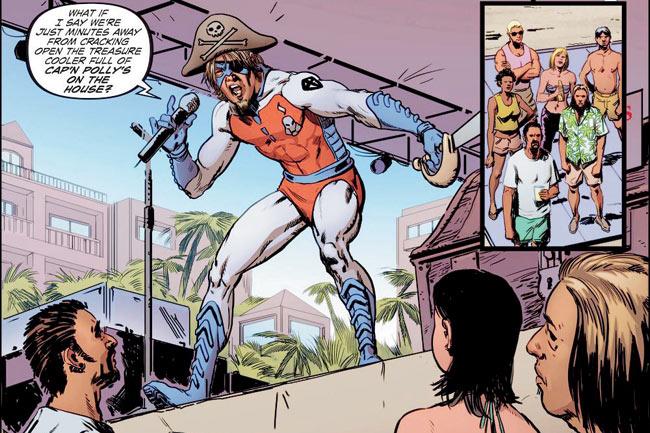
A page from the Insufferable Digital Comic Collection by Comixology
If you could move away from the superhero trope, what kind of character would you like to devise, keeping the times in mind?
I've actually done a lot of non-superhero work in my career, and I tend to veer towards mystery stories and detective stories (Ruse for Crossgen and, later, Marvel; Potter's Field and The Unknown for Boom! Studios). Next to superhero tales, mysteries are my great love.
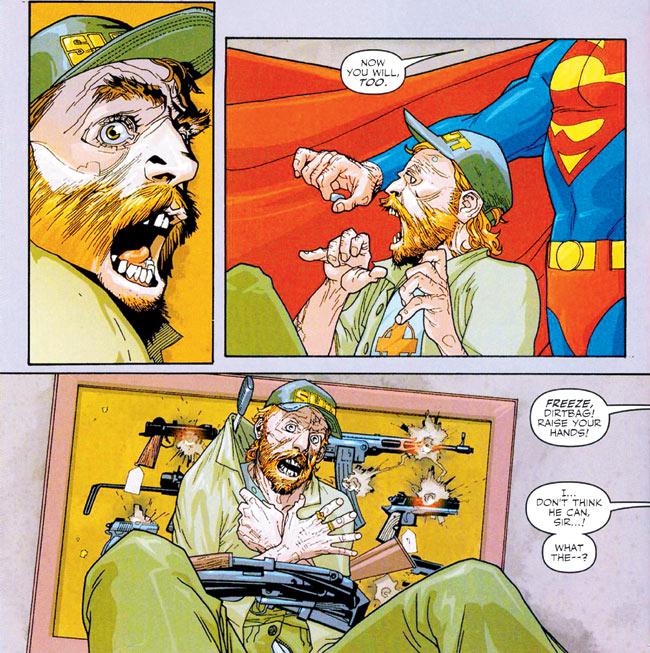
A page from Superman Birthright. It is a twelve-issue comic book limited series written by Waid
Which is your favourite comic?
There is an issue of Action Comics from 1980 — the 500th issue. The 64-page book-length story chronicles the entire legend of Superman from start to finish; it is written by Marty Pasko and drawn by Curt Swan, two of my favorite comic creators of all time. That's the one comic I'd take to a desert island.
 Subscribe today by clicking the link and stay updated with the latest news!" Click here!
Subscribe today by clicking the link and stay updated with the latest news!" Click here!






